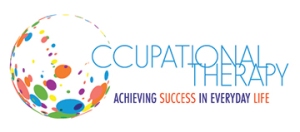April: Not a month for fools! Pull a prank on the first, but the rest of the month is National Poetry Month and National OT Month.
Most of us know what poetry is, but what is OT? An occupational therapist myself, I can say a little something about that!
Let’s start with some spring cleaning and air out the room with what occupational therapy is NOT:
- OT is not helping a person find a job and get back to work (though it could include that)
- OT is not physical therapy (though it includes physical rehabilitation and exercise)
- OT is not weaving baskets (though we started that way, helping injured Civil War soldiers find their usefulness again)
- OT is not playing with children (though, if we are doing our job well, it feels like play to the child!)
- OT is not making crafts in the psych ward (there is a method to their madness!)
- OT is not a therapist prescribing activities you must do to get better (if it feels that way, we missed the mark)
Misconceptions aside, let’s focus on celebrating the awesomeness!
Occupational therapy IS a health profession that skillfully employs meaningful activities to create and support functional participation for people with challenging conditions. We work in hospitals, physical rehabilitation centers, homes, schools, daycare and mental health centers. We facilitate all facets of health with persons, families, companies, communities. . . even societies. As an occupational therapist, I freely, openly and unabashedly admit that I love occupational therapy!
To celebrate National Poetry and Occupational Therapy Month, I offer this, my poem about occupational therapy! As you will soon see, I am more OT than poet.
Occupational Therapy
An artful blend
of science
and simplicity,
therapeutic
authenticity.
Buoyed by heritage,
research, and college:
Intense preparation,
foundational knowledge~
There’s anatomy,
physiology,
neurology, too.
Psychology,
kinesiology,
technology, woo!
development and human ecology,
and a little pharmacology, who knew?
A touch of gerontology,
anthropology, yes.
Micro- to macro- sociology,
a bit of theology, God bless.
There’s structure
and function,
identity, process,
abilities, unction.
There are roles and habits
to assess,
routines and interests
to address.
There’s history, framework
and principled theories,
Models and practice,
and, lest you grow weary:
Consider relationships,
values, beliefs,
cognition, attention,
caregiver relief.
Assessing environment,
ergonomics and means,
selecting equipment,
for elders or teens.
We modify, formulate
and make adaptations.
We codify, delegate
and give adulations.
All of this knowledge concealed from your view,
we come alongside and spend time with you.
We share in your struggle,
engage your connection;
we want to do more than facilitate function.
For joy, and purpose,
and efficacy too,
are the pillars supporting what humans can do.
We’re primed for the NICU,
the preemie-pound baby;
to nestle him, swaddle her,
give hope for what may be.
Teach parents and nurses
to grade stimulation:
his stress signs, her turning. . .
reduce light, sound and touch,
like a womb, for the learning.
Chin tuck, cheek support,
respect gaze aversion;
promoting connection,
’til infant can burgeon.
Then, later on,
tummy time,
feeding and play,
motor skills,
reaching,
into something all day.
Sensory processing,
modulation and then,
integration for ease
of all systems to blend.
Bringing the just-right challenge,
we grow–
producing responses
in beautiful flow.
Developing handwriting,
visual perception,
peer interactions
and social connection.
Teens needing special consideration,
peer groups and identity,
with little oration.
Any splint that we form,
or device that we craft
better suit the teen norm
so they won’t feel outcast.
On to adulthood,
where the great inclination–
to establish and master,
with keen inspiration,
independence and skill
in the face of impairment.
We come alongside,
being tough, with endearment.
Empowering patience,
setting goals for today,
equipping the wounded
with a will and a way.
You’ll find us with elders
wherever the need;
healing with basics
from bathing and dressing, to pulling a weed.
It may seem we’re playing when we bring you your putter,
but we’re really ensuring your balance is better.
“I can cook this at home,”
you may say with assurance.
“Teach me how,” we implore,
(for your safety, endurance).
Whether cooking or eating,
standing or seating,
playing piano, or maybe just listening,
balancing checkbooks
or just reminiscing;
we’re facilitating
what matters to you,
showing your value
whether just be, or do.
And then, in the workplace,
the healthcare machine–
equipped here to manage,
so much to convene:
Keeping ethics, best practice
and excellence as key,
we do billing and coding,
document properly.
For without reimbursement,
we could not continue
to make such a difference
For someone–like you.
So, in all walks of life
there is some occupation;
we therapists share
this one aspiration:
To be about
the work of imbuing
The beauty of
human beings, doing.
~~~~~~~~~~~~~~~~~
Did I mention that I love occupational therapy? 😉
Everyone knows someone who needs to hear about OT. Link up, pingback, spread the word! Please, all of you OT’s out there, add a stanza or two and tell us what you do.
©Joan T. Warren

Share this from joantwarren.com:


 For the back story, check out this poem about OT:
For the back story, check out this poem about OT:
